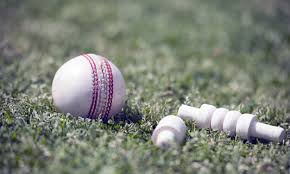First Test: England v Australia
Venue: Trent Bridge, Nottingham
Date: 10-14 July
Start time: 11:00 BSTCoverage: Ball-by-ball Test Match Special commentary on BBC Radio 5 live sports extra, BBC Radio 4 Long Wave and via the BBC iPlayer Radio app, BBC Sport website & BBC Sport app. Live text commentary on BBC Sport website, app & mobile devices
When England’s cricketers take to the field against Australia at Trent Bridge, Nottingham, on Wednesday, they will be competing for one of sport’s most historic prizes – the Ashes.
But what are they? Why are they so important? And, more importantly, who is going to win them this summer?
Here is BBC Sport’s guide to one of the biggest and oldest cricketing rivalries.
What are the Ashes?
Following England’s first defeat by Australia on home soil at The Oval in August 1882, the Sporting Times carried a mock obituary of English cricket, which concluded that: “The body will be cremated and the ashes taken to Australia.”
A sporting obsession was born and Ivo Bligh, England captain at the time, pledged to win back “the Ashes” on the return tour to Australia a few weeks later.
Although the hosts won the first Test, a match played over five days, England won the next two and succeeded in winning the series.
To mark the achievement, Bligh was given a small terracotta urn as a symbol of the Ashes that he had travelled to Australia to regain.
The two countries have competed for the symbolic urn in both countries ever since.
There have been 310 Ashes Tests since 1882, with Australia winning 123 and England 100. In 66 Ashes series, Australia have won 31 and England 30.
Why does it matter?
The Ashes are perceived as the pinnacle of Test cricket for both English and Australian cricketers.
The closely linked history of both countries means it has always been a fiercely contested competition – and it was the source of cricket’s first major controversy in 1932-33.
During a tour down under, England captain Douglas Jardine devised a plan to stop legendary Australian Donald Bradman, widely regarded as the game’s greatest ever batsman.
The series was nicknamed “Bodyline” as Jardine instructed his bowlers to bowl fast and at the body of their opponents – tensions coming to a head when Australian batsman Bert Oldfield collapsed with his skull fractured by a lightning-fast delivery.
England won the series 4-1, but relations between cricket administrators in both countries became strained.
While it is more amicable between the teams in the modern day, there is still a competitive edge between both sides.
From Allan Border to Sir Ian Botham and Shane Warne to Andrew Flintoff, Ashes folklore is littered with tales of stellar performances against the oldest of cricketing enemies.
-BBC Sports




